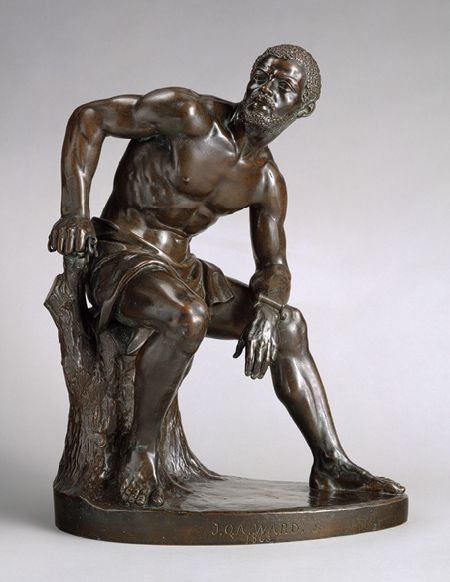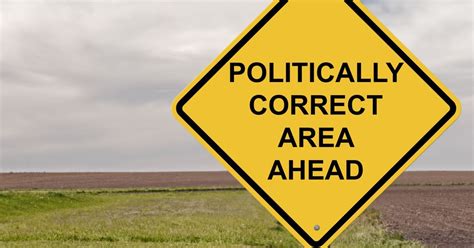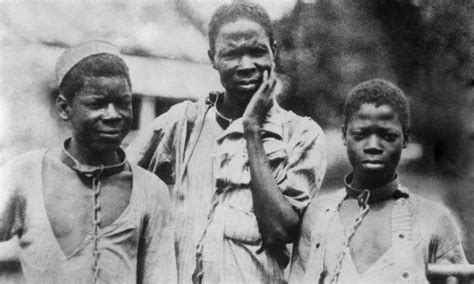In Lincoln’s day, the slave states considered slavery morally right. As Lincoln pointed out in his Cooper Union speech, they insisted that slavery was legally right and not subject to challenge.
Demanding what they do, and for the reason they do, they can voluntarily stop nowhere short of this consummation. Holding, as they do, that slavery is morally right, and socially elevating, they cannot cease to demand a full national recognition of it, as a legal right, and a social blessing.
 The core of the issue is moral and metaphysical. Slavery is a moral evil and thus needs to be opposed. Slaves are not less than human; they bear the image of God. They are fully human, of equal dignity and worth. These truths cannot be compromised. In fact, Lincoln argues there is no middle ground between the two views. Listen to these clarifying and impassioned words.
The core of the issue is moral and metaphysical. Slavery is a moral evil and thus needs to be opposed. Slaves are not less than human; they bear the image of God. They are fully human, of equal dignity and worth. These truths cannot be compromised. In fact, Lincoln argues there is no middle ground between the two views. Listen to these clarifying and impassioned words.
All they ask, we could readily grant, if we thought slavery right; all we ask, they could as readily grant, if they thought it wrong. Their thinking it right, and our thinking it wrong, is the precise fact upon which depends the whole controversy. Thinking it right, as they do, they are not to blame for desiring its full recognition, as being right; but, thinking it wrong, as we do, can we yield to them? Can we cast our votes with their view, and against our own? In view of our moral, social, and political responsibilities, can we do this?
Lincoln’s argument against slavery applies to today’s postmoderns
Lincoln continues to press his point.
Can we, while our votes will prevent [slavery], allow it to spread into the National Territories, and to overrun us here in these free states? If our sense of duty forbids this, then let us stand by our duty, fearlessly and effectively. Let us be diverted by none of those sophistical contrivances wherewith we are so industriously plied and belabored – contrivances such as groping for some middle ground between the right and the wrong, vain as the search for a man who should be neither a living man nor a dead man – such as a policy of “don’t care” on a question about which all true men do care – such as Union appeals beseeching true Union men to yield to Disunionists, reversing the divine rule, and calling, not the sinners, but the righteous to repentance – such as invocations to Washington, imploring men to unsay what Washington said, and undo what Washington did.
Lincoln ends with a call to refuse the arguments of the slave states and to speak and act on the truth.
Neither let us be slandered from our duty by false accusations against us, nor frightened from it by menaces of destruction to the Government nor of dungeons to ourselves. LET US HAVE FAITH THAT RIGHT MAKES MIGHT, AND IN THAT FAITH, LET US, TO THE END, DARE TO DO OUR DUTY AS WE UNDERSTAND IT. [original emphasis]
For the entire text of Lincoln’s Cooper Union speech, go here.
May we make the commitment and spend the energy to oppose the shallowness and illusions of postmodern culture. May we pray for and work toward a reformation of culture in keeping with our historic Judeo-Christian heritage.
Be not silent
Finally, we need the cleansing antidote of truth. Postmoderns and their political allies today are not content with promoting lies; they are insistent that we collaborate and bow down to their lies. This is not a new demand.
“The question recurs,” Lincoln said of the Democrats in his Cooper Union speech , “what will satisfy them? … This and only this: cease to call slavery wrong and join them in calling it right. Silence will not be tolerated—we must place ourselves avowedly with them.”
 The enforcement of political correctness has been a Democratic strategy from Lincoln’s day to our own.
The enforcement of political correctness has been a Democratic strategy from Lincoln’s day to our own.
One last tangential thought: as I read Lincoln’s profound arguments against slavery and the making of slavery the rule of the land, I am impressed with the substance of what he said, the detail of his argument and the wonderful turning of his words. How shallow our postmodern world where Twitter and Facebook comprise communication.
Truth is our deadliest weapon
Dinesh D’Souza writes:
For too long conservatives and Republicans have allowed big lies to take over the culture and, in some cases, their minds. This progressive cultural hegemony has polluted our education system and our media with fake narratives and fake history. It has also created a kind of Stockholm syndrome among conservative intellectuals. “In our hearts we know we’re wrong.” But we’re not wrong. We’ve been lied to. It’s time for us to stop apologizing—we have nothing to apologize for—and go on the offensive. Truth is our deadliest weapon, if we will deploy it.
The defeat of the [Democratic] plantation would make Trump the first great president of the 21st century, and the GOP the worthy custodian of American ideals. With our support, Trump can bring to an end the vicious train of exploitation that the Democratic Party has wrought for nearly years. What better way to rescue the principles of the founders, and to vindicate the philosophical statesmanship of Lincoln, than to sweep away this blight on the American experiment, this nightmarish interruption of the American dream?
“The fiery trial through which we pass,” Lincoln said in his Annual Message to Congress in 1862, “will light us down, in honor or dishonor, to the latest generation.” The point, he had already stated in his Peoria speech several years earlier, was not merely to save the Union. Rather, “If we do this, we shall not only have saved the Union, but we shall have so saved it as to make, and to keep it, forever worthy of the saving.” This America worth saving is the object of our striving; it is what Lincoln termed “the last best hope on earth.”
- Darrow Miller






